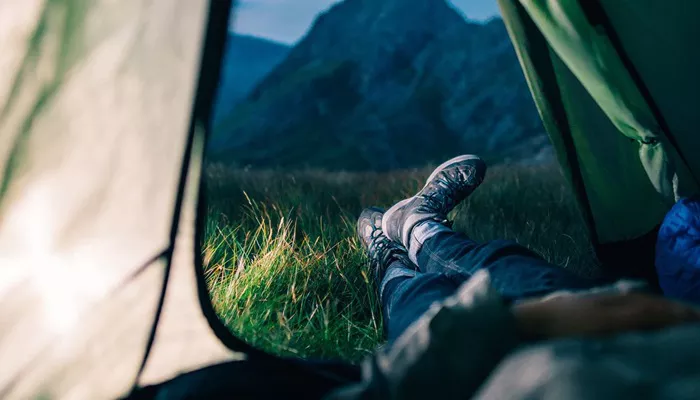Camping is a wonderful way to reconnect with nature, relax, and enjoy the great outdoors. Whether you are a seasoned camper or a beginner, knowing what to bring on your overnight camping trip is essential for a comfortable and enjoyable experience. In this guide, we will break down the necessary items into categories, ensuring you have everything you need for a successful adventure.
1. Essential Gear
Tent
A quality tent is your home away from home. Choose a tent that fits your group size and is suitable for the weather conditions. Make sure it’s waterproof and has good ventilation. Don’t forget to pack:
- Tent stakes and guylines
- Ground tarp or footprint to protect the tent floor
- A rainfly for extra protection against the elements
Sleeping Bag
A sleeping bag keeps you warm and comfortable at night. Select a bag rated for the season and temperature you expect. Here are some tips:
- Choose a sleeping bag that is lightweight and easy to pack.
- Consider the shape: mummy bags are great for warmth, while rectangular bags offer more space.
Sleeping Pad
A sleeping pad provides insulation and comfort while you sleep. It also helps to keep you off the cold ground. Options include:
- Air pads: Lightweight and comfortable, but may be prone to leaks.
- Foam pads: Durable and affordable, but bulkier to carry.
2. Cooking Supplies
Portable Stove or Campfire Cooking Gear
Cooking outdoors can be fun! Choose a portable camping stove or prepare for a campfire. Don’t forget:
- Fuel for the stove (propane or butane)
- Lighter or waterproof matches
- Cooking pot and pan
- Cooking utensils (spatula, tongs, etc.)
- Biodegradable soap and a sponge for cleaning
Food and Snacks
Plan your meals ahead of time. Choose non-perishable items for easy packing. Consider bringing:
- Breakfast items (oatmeal, granola bars, etc.)
- Lunch (sandwich fixings, trail mix)
- Dinner (freeze-dried meals, pasta, canned soup)
- Snacks (fruit, nuts, energy bars)
Cooler
If you plan to bring perishable food, a cooler is essential. Look for one that is:
- Well-insulated to keep food fresh
- Portable and easy to carry
3. Hydration
Water Supply
Staying hydrated is crucial when camping. You have a few options for water:
- Bring bottled water: Convenient but can create waste.
- Use a hydration reservoir or water bottles: These can be refilled.
Water Filtration System
If you plan to source water from lakes or streams, a filtration system is necessary. Consider:
- Water filters or purification tablets
- Collapsible water jugs for carrying water back to your site
4. Clothing and Footwear
Weather-Appropriate Clothing
Dress in layers to adapt to changing weather conditions. Key items to pack include:
- Base layer (moisture-wicking shirts and pants)
- Insulating layer (fleece or down jacket)
- Outer layer (waterproof jacket)
- Extra socks and underwear
Footwear
Comfortable footwear is crucial for hiking and exploring. Bring:
- Hiking boots or shoes with good traction
- Camp shoes or sandals for relaxing at the campsite
5. Personal Items
First Aid Kit
A well-stocked first aid kit is essential for any camping trip. Include:
- Band-aids and gauze pads
- Antiseptic wipes
- Pain relievers (ibuprofen or acetaminophen)
- Any personal medications
Toiletries
Maintain hygiene while camping by bringing:
- Biodegradable soap and shampoo
- Toothbrush and toothpaste
- Toilet paper (and a trowel for digging a cat hole if necessary)
- Personal hygiene items (deodorant, menstrual products, etc.)
Sunscreen and Insect Repellent
Protect yourself from the sun and pesky bugs by packing:
- Broad-spectrum sunscreen with at least SPF 30
- Insect repellent with DEET or natural alternatives
6. Navigation and Safety
Map and Compass or GPS
Even if you plan to use a smartphone for navigation, it’s wise to carry a physical map and compass as a backup. Familiarize yourself with the area and download offline maps if needed.
Multi-Tool or Knife
A multi-tool or knife is invaluable for various tasks, such as food preparation, gear repair, or first aid. Look for one with:
- A knife blade
- Screwdrivers
- Can opener
Flashlight or Headlamp
Illumination is essential after dark. Bring:
- A reliable flashlight or headlamp
- Extra batteries or a solar charger
7. Entertainment and Relaxation
Books or E-Reader
Evenings at the campsite can be a great time to unwind. Bring a book or e-reader for some leisurely reading.
Games or Cards
Consider packing a deck of cards or travel-sized games for fun group activities.
Hammock
A lightweight hammock can be a perfect spot for relaxation during the day. It’s easy to pack and can enhance your camping experience.
8. Optional Items
Camera or Smartphone
Capture your camping memories by bringing a camera or smartphone. Don’t forget a portable charger or power bank.
Camp Chair
A lightweight camp chair offers a comfortable place to sit around the campfire or relax at your campsite.
Tarp or Shelter
A tarp can be used for extra rain protection or a shade structure during the day. It’s versatile and can enhance your camping experience.
Fishing Gear
If you plan to fish, pack your fishing gear, including a rod, reel, and bait.
Conclusion
Preparing for an overnight camping trip requires careful planning and consideration of your needs. By packing the essentials outlined in this guide, you can ensure a comfortable, safe, and enjoyable experience in the great outdoors. Remember to tailor your gear to the specific conditions you expect and your personal preferences. Happy camping!
Related topics:
- The Best Rain Shelter for Camping
- Top 5 Sleeping Mattresses for Camping
- Best Packing List for Camping

